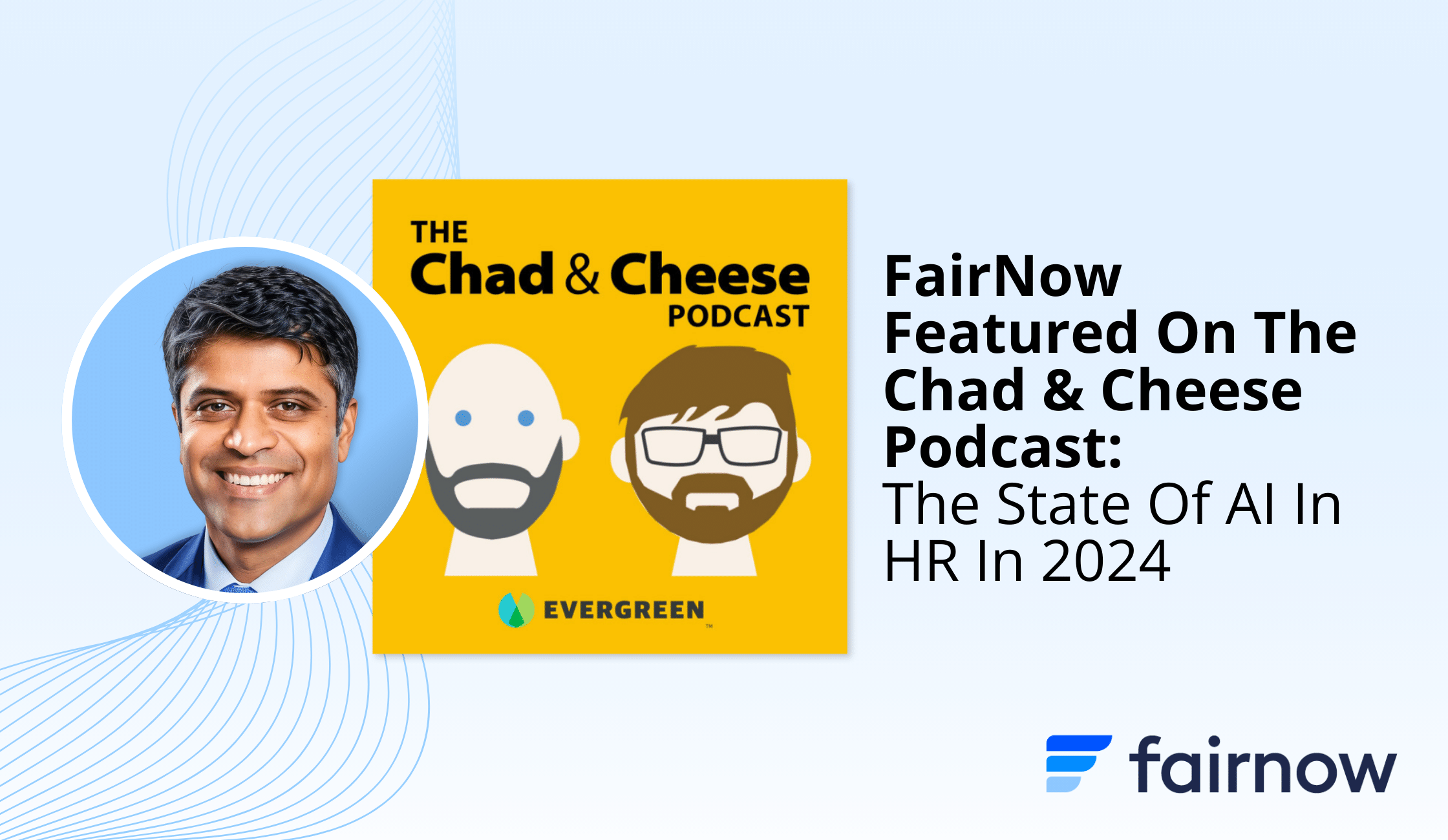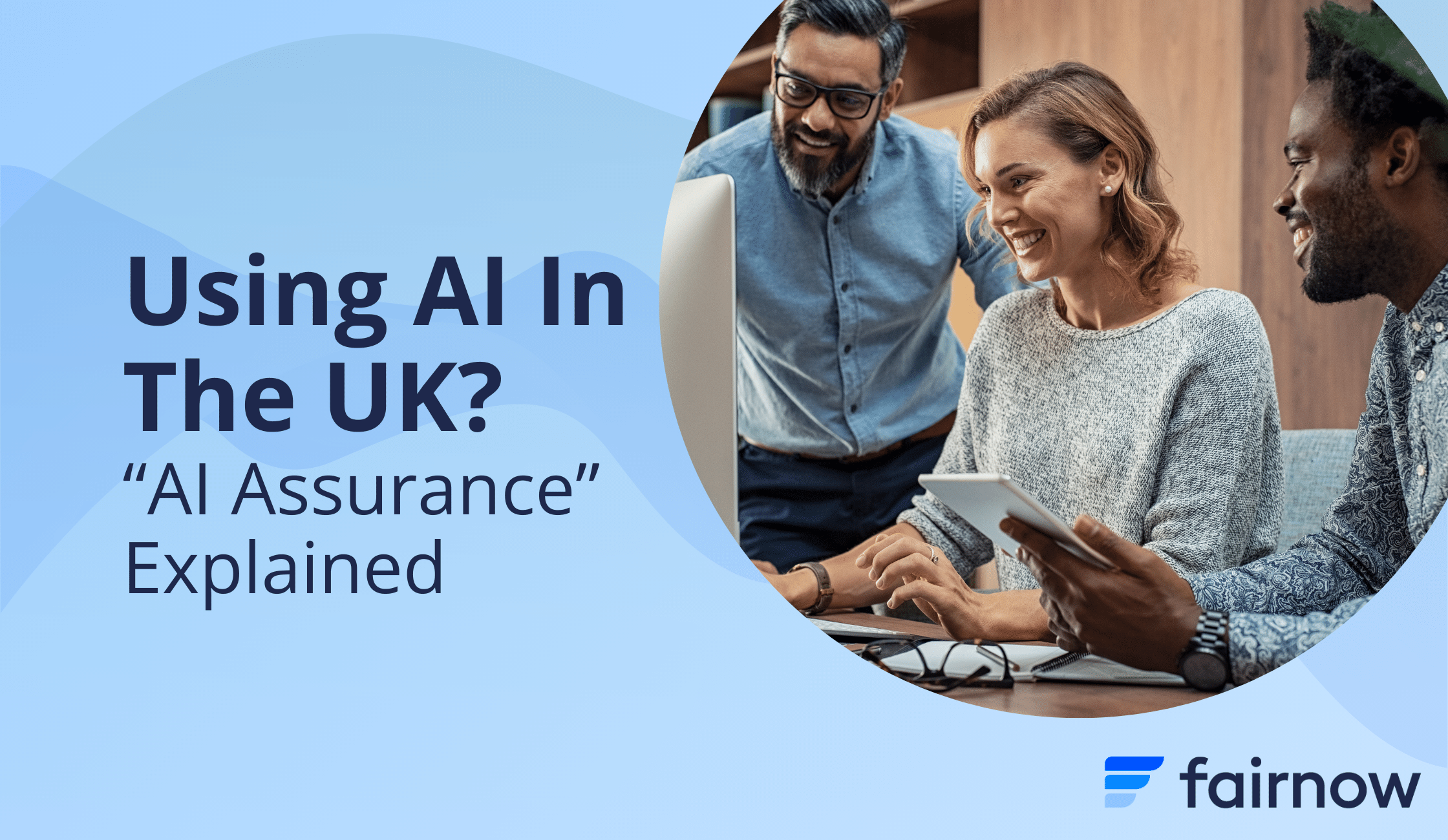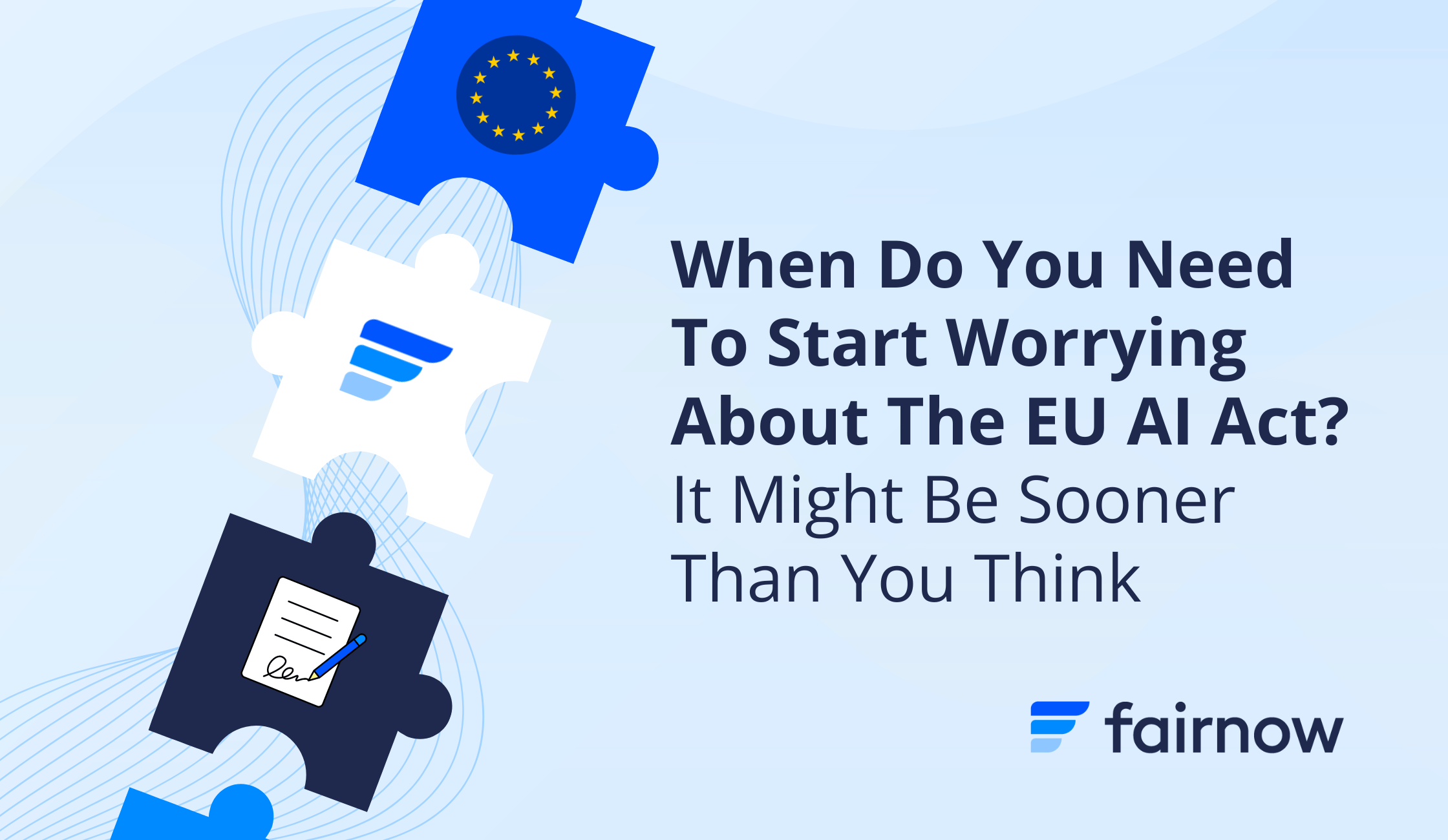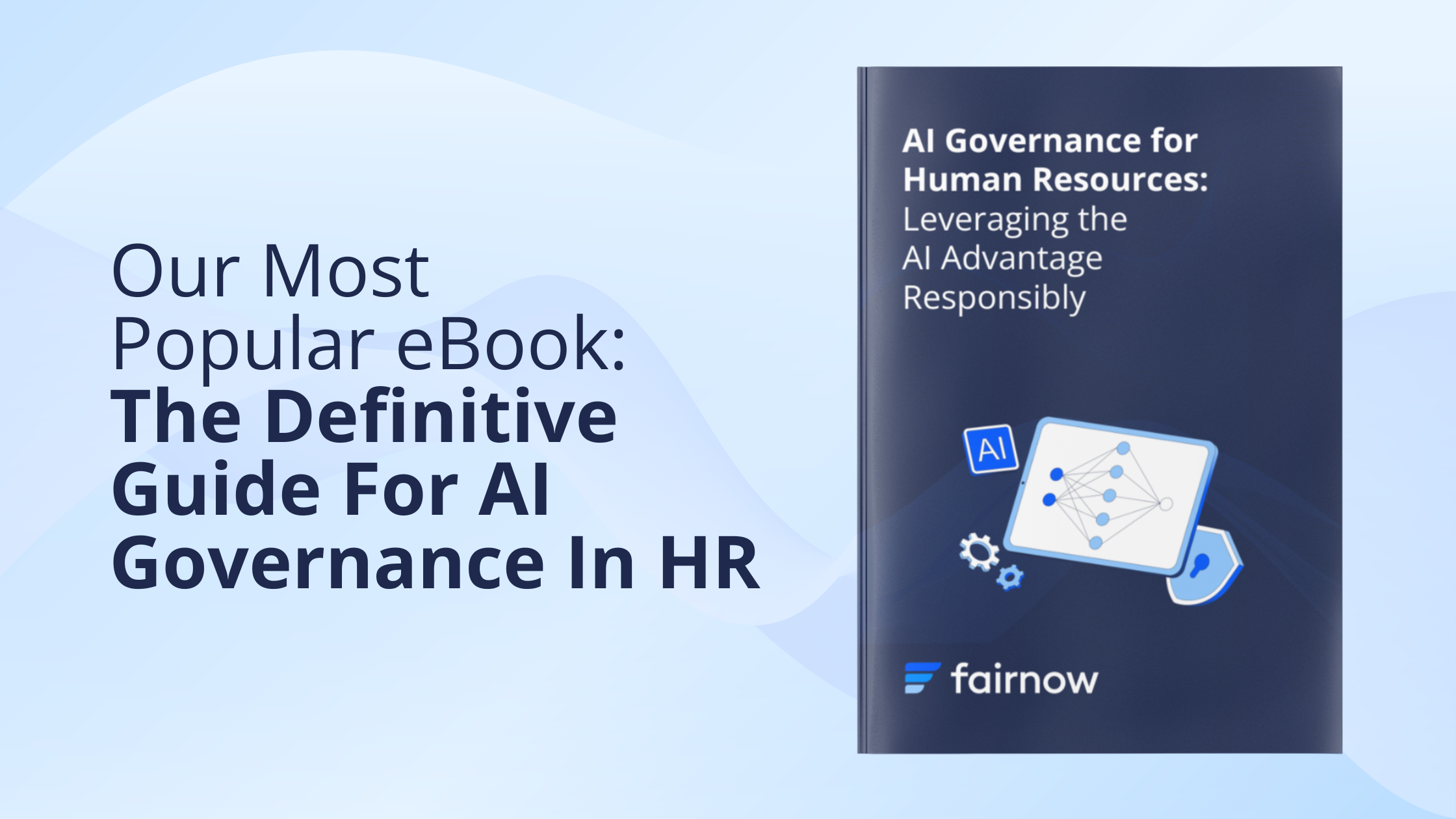Get up to date with everything you need to know about AI governance in HR in 42 minutes or less.
The Top 10 Takeaways About AI Governance In HR In 2024
1) AI Compliance and Governance Is Here To Stay: Guru Sethupathy’s company, FairNow (hey, that’s us!), assists companies in ensuring their AI solutions are compliant and well-governed. This is increasingly important as AI becomes more integrated into HR processes, with potential risks including bias and discrimination.
Additional regulations around responsible AI use are being published and refined around the world every single day.
2) The Workday Discrimination Lawsuit Is A Wake-Up Call: The discussion highlighted a lawsuit against Workday, which underscores the growing legal scrutiny over AI in recruiting and hiring, especially regarding bias and fairness in automated decision-making tools. All eyes will be on this lawsuit going forward.
3) The Current Regulatory Landscape Is Messy (And Getting Messier): Both in the US (California, New Jersey, New York) and internationally (EU AI Act), there’s a trend towards stricter regulation of AI, including obligations for AI transparency, fairness testing, and governance, which impacts both vendors and employers.
Much like tax law, regulations are currently being debated at the municipal, state, and federal levels.
4) Who Is Liable When AI Makes Mistakes? Vendor vs. Employer Responsibility: There’s a significant focus on whether vendors (like AI tool developers) or employers using these tools should be responsible for ensuring AI fairness and compliance. Recent legal and regulatory developments suggest both might be held accountable.
5) Why Is There Such A Focus On AI In HR And Recruiting? AI offers considerable opportunities for efficiency and insights in HR but also comes with challenges, such as potential bias in AI-driven recruiting tools, necessitating careful governance and testing.
According to the definitions of the EU AI Act, most HR tech tools that deal with employment are considered high-risk.
6) What About Global Regulatory Challenges? Companies operating internationally must navigate a patchwork of AI regulations, making global HR processes extremely complex. This is compounded by differing standards and regulations across countries and regions.
7) The Importance Of Data In AI: The conversation underscored that the data used to train AI models is crucial. Ensuring high-quality, unbiased data is essential for responsible AI applications in HR.
8) Emerging Standards and Practices: There’s a movement towards establishing standards for responsible AI use, such as ISO 42,001, which could help guide companies in developing and deploying AI tools in a compliant, ethical manner.
9) Monitoring and Testing AI: Continuous monitoring and testing of AI models for bias and performance are essential for compliance and ethical considerations, highlighting the need for specialized tools and expertise in this area.
10) What Is The Future of AI in HR? Despite the complexities and challenges, AI’s role in HR is poised to grow, driven by its potential to enhance decision-making, improve efficiency, and provide insights. Companies need to balance innovation with compliance and ethical considerations.
The discussion with Guru (hey, that’s our CEO!) provided deep insights into the current and future landscape of AI in HR, emphasizing the importance of compliance, governance, and ethical considerations in leveraging AI technologies.
Ready to become compliant the easy way? Request a speedy demo here!
Keep Learning




